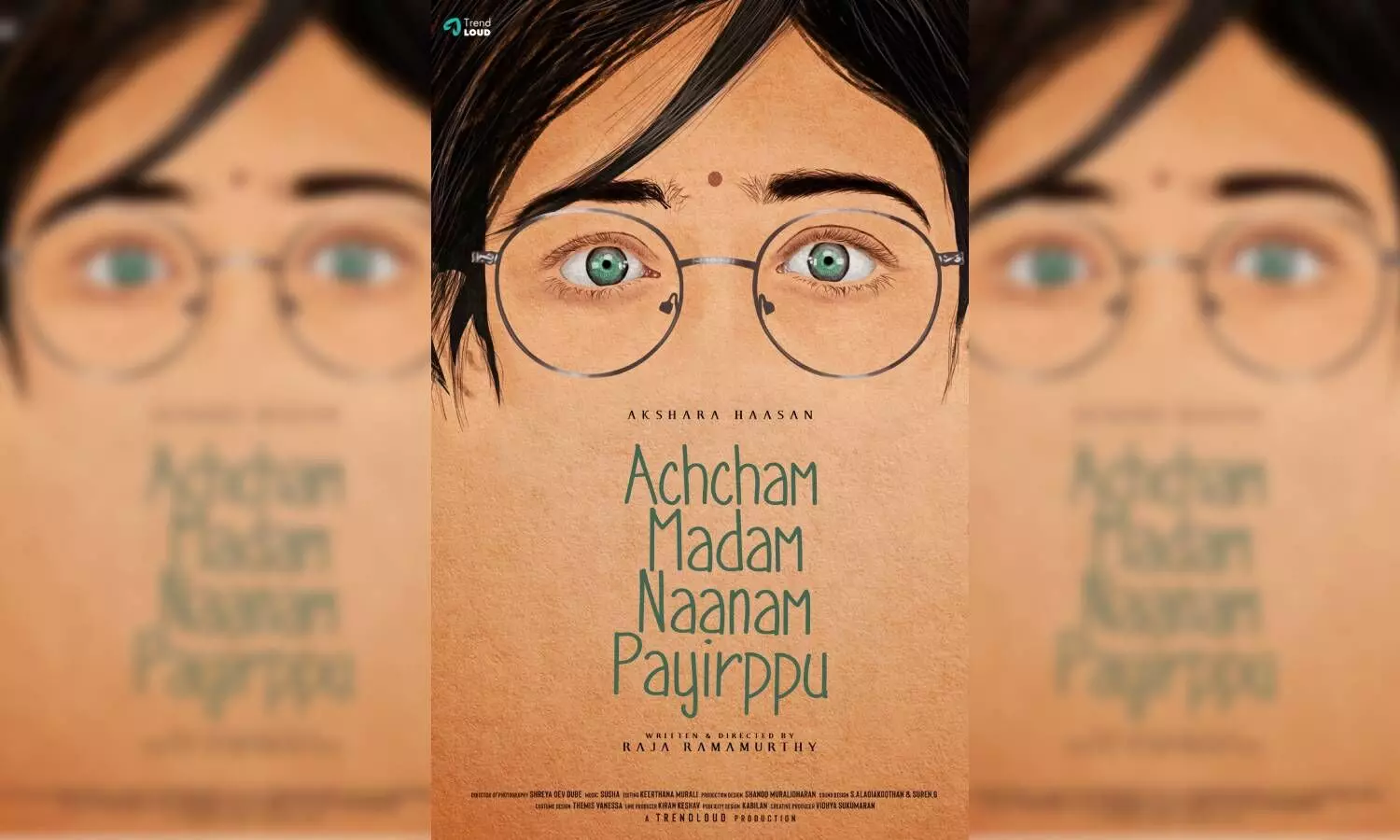Review: 'Accham Madam Nanam Payirippu' is a breezy watch for those looking to avoid commercial misogynistic undertones
‘Accham Madam Nanam Payirippu’ is a three-pronged tale that neatly ties itself into a bow while exploring female sexuality in the contemporary Indian context.
By Dheeraj Rayalu
Hyderabad: 'Accham Madam Nanam Payirippu' is a three-pronged tale that neatly ties itself into a bow while exploring female sexuality in the contemporary Indian context.
Pavithra (Akshara Hasan) is a typical young adult caught between her family's expectations of dignity and her own needs and desires. The movie works on symbolism that is conveyed in three prongs. The primary one being the applaudable use of colour palette across the movie where blocks of red and green signify the character's choices that falls into the traditional binary of what is acceptable and what is not. The second prong crosses into the symbolism offered by Pavitra's friends, Rathi and Jessica, who stand for the Freudian representations of innate desire and societal moral clippings, respectively. And obviously, the last prong is the actual story involving the individual characters.
Freudian symbolism of the perpetual struggle between Id (desire) and Superego (Morality) that put the Ego (Reality) in great distress stands boldly across the narrative which makes the storytelling not only clever but thoughtful in terms of delivering the actuality of intent rather than slipping into a cash crop of innuendos by resorting to a mask of sex educational tropes.
Pavitra's struggles are aptly displayed with her costume colours when she goes through her routine of music classes, meeting her friend and boyfriend, eating meat, and so on. Other symbols that work their way through narration include the scams of the "family friends" that exemplify the nature of societal interventions through relatives and friends.
The pace of the movie is fairly uniform with the focus being simple and delivered by additive performances of the necessary scale. Akshara portrays the struggle of a common girl quite satisfactorily, thanks to her exposure being unblemished by any significant mainstream presence.
The chemistry with Harish (Siddhartha Shankar) feels welcoming and subtle. The vacillation between sexual desire vis-à-vis the autonomy of women and safeguarding the supposed honour of the family is packed well into the albeit limited scope and crux of the story. Usha Uthup as the supportive grandmother is the most notable after the protagonist and is followed by ample but not so loud performances by the rest of the cast.
While the story does land its notes quite smoothly in the beginning and the continuation, the ending seems a bit too sudden and wrapped up prematurely with some euphoric reconciliation between the desire and the moral obligations that does not seem like it would sustain over the extension of the climax. Also, while subscribing to the central idea, the story felt like it was boxed too tight while it could still explore more complex connections to other issues without releasing the steam too much.
'Accham Madam Nanam Payirippu' builds on symbolism and is a breezy watch for anyone looking to avoid landmines of commercial misogynistic and chauvinistic undertones.